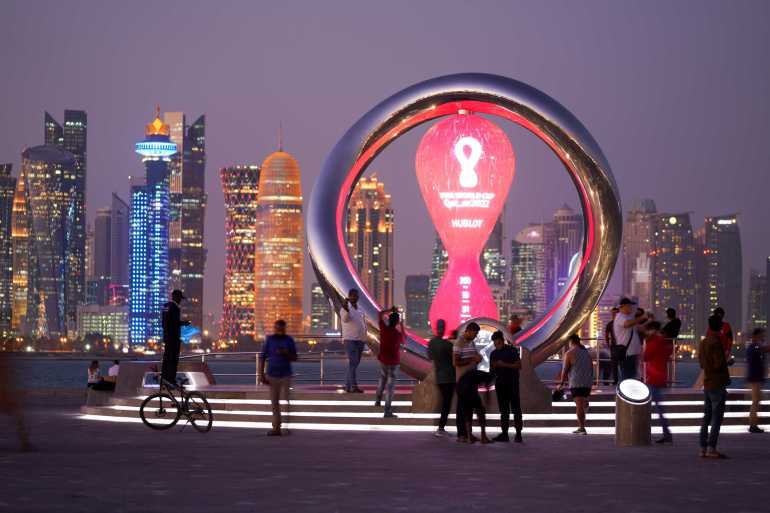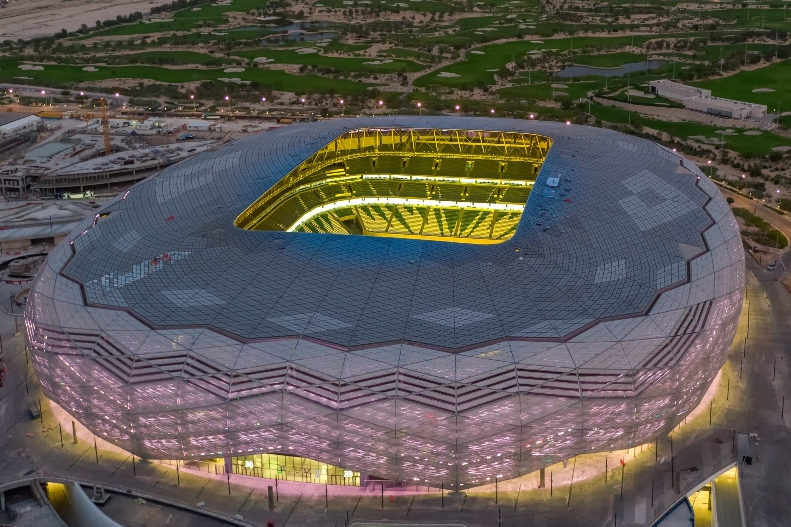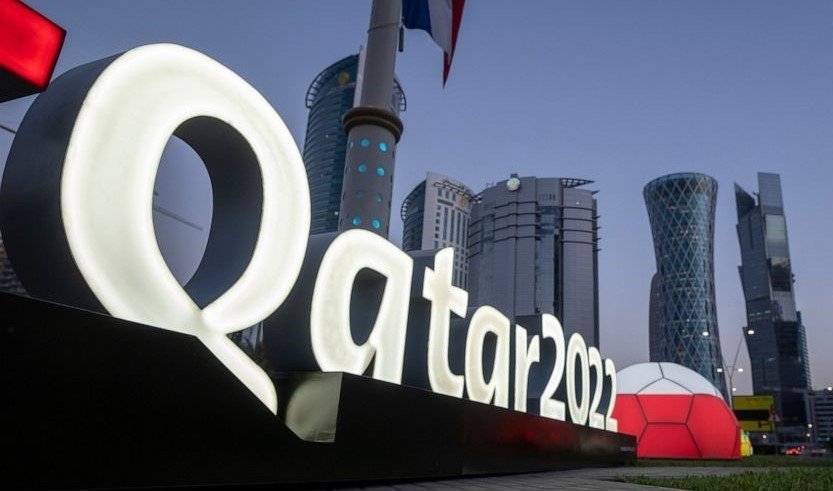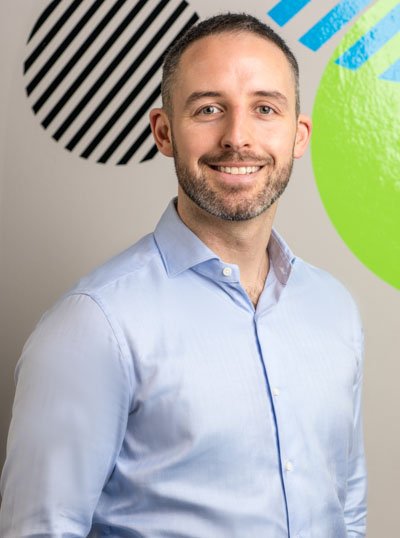The opening ceremony of the FIFA World Cup 2022 is now just 35 days away.
FIFA World Cups are rarely without controversy, however, even by the chequered standards of world football’s governing body, the awarding of the tournament to Qatar lies at an uncomfortable intersection of sport, business and human rights.
To date, the traditional pre-tournament media fervour in this corner of the world has been largely eclipsed by public condemnation of the host country’s mistreatment of migrant workers, its criminalisation of same-sex relationships, and a drip-feed of revelations relating to the corrupt nature of FIFA’s bidding process.
In the last fortnight alone, The Sunday Times published a headline story; ‘Briton found hanged ‘was tortured by Qatar police’. While David Beckham’s newly unveiled Qatari ambassadorial partnership was last week described by advocacy groups as ‘stamping out hope’ for Qatar’s LGBTQ+ community.

Unresolved feelings
This backdrop has left many of us feeling uncomfortable and unresolved about how we engage with the tournament.
In early October, Amnesty International published new research, which surveyed 17,000 people across 15 countries, suggesting that 67% of football supporters wanted to see their national football associations speak out against human rights abuses associated with the Qatar World Cup.
Ultimately, the window of time for mounting meaningful opposition to the Qatar World Cup has long since been and gone, however, in the weeks ahead, FIFA and its various interested parties, will be readying themselves for a fresh barrage of protest.
FIFA, for its part, is an insidiously political organism, with a rap sheet to back it up. Yet, it has historically gone to great lengths to keep its showpiece event a strictly apolitical affair, doing everything in its power to snuff out even the faintest whiff of on-the-pitch political activism.
However, in recent years, we have seen a new generation of young footballers more willing to use their public platforms to weigh in on the socio-political issues of the day. Many global brands, large corporations and sporting bodies have attempted to follow this lead, even if they are very careful to pick and choose when and how they exercise their muscle.
In doing so, some have enhanced their reputations, meanwhile others stand accused of hypocrisy or gesture politics. Recent evidence would suggest not all social justice causes are created equal, particularly when there is powerful market- and geopolitical forces at stake.

Showing solidarity or superficial gestures
In the case of the Qatar World Cup, the relevant parties have had a long lead-in time to pre-empt the difficult questions and fine-tune the official party line.
One of the first movers in this space, was the Danish Football Association (DBU). In late September, the DBU generated international headlines when it launched the official Denmark World Cup kit, designed to honour migrant workers killed during the construction work for the tournament. The launch included a black option; “the colour of mourning”, according to its kit manufacturer Hummel.
Since then, Denmark and some of its European neighbours, including England, have committed to wearing an anti-discrimination ‘One Love’ captain’s armband throughout the tournament, in defiance of Qatar’s criminalisation of same-sex relationships. Inevitably, FIFA will move to block the gesture, but the English FA has indicated it is prepared to incur any resulting sanctions. The England squad has also invited migrant workers to visit its World Cup training base and has endorsed the idea of compensation for the families of those killed on World Cup-related construction projects.
The French Football Federation (FFF) was one of eight European countries to vote in favour of Qatar hosting the 2022 World Cup. In addition, the French Government’s close political links with the Qatar Royal family are well documented. However, in recent days, the Mayor of Paris has announced a rather tepid big-screen boycott of the World Cup, citing Qatar’s human rights and environmental record.
Overall, the reaction to these gestures has been at best mixed. Some have welcomed these public displays of solidarity, meanwhile others have dismissed them as tokenistic and misdirected. Certain quarters argue that anything short of a boycott does little to move the needle on important human rights abuses.
Given the myriad of different views on the matter, it prompts the question of how can football associations, their players, managers and even sponsors ever hope to get it right?
England manager Gareth Southgate is one of the more accomplished football communicators on highly emotive social issues. In a recent media interview, he argued that the England team was going to be criticised no matter what action it took, claiming that “there is a limit to what we can affect”.

Action anchored in substance
Amnesty International has long maintained that the Qatar World Cup should go ahead and be utilised as an opportunity to improve workers’ rights. It has called for €440 million in tournament revenues to be ringfenced for a compensation fund for migrant workers. To date, at least seven of the participating 32 countries have endorsed this ask, at least in media.
In the coming weeks, the big European league fixtures will draw to a temporary close, and the footballing world will turn its gaze to a tiny oil-rich county in the Middle East.
The window for meaningful opposition to Qatar’s hosting of the World Cup may have passed, but it will be telling to see how footballing officialdom, alongside players, pundits, foreign dignitaries, and sponsors, navigate the uncomfortable questions that potentially lie ahead.
At face value, members of the global football community looking to use their platform to highlight injustice or drive change should be welcomed. However, for those seeking to use the World Cup stage to flex their political or activist muscle, it is imperative that their message is consistent, informed and underpinned by substance.

With his intelligent communications skillset and extensive media connections, Paddy helps clients build stand-out messaging and achieve their business objectives, whether they’re a start-up raising seed capital or an established player pushing for industry reform or telling their employer brand story. Paddy has been published in a number of national publications, including the Business Post, Irish Independent, Fora.ie, and The42.ie on the theme of strategic communications and reputation management.
(This article was originally published in The Sunday Business Post on 16 October 2022.)
